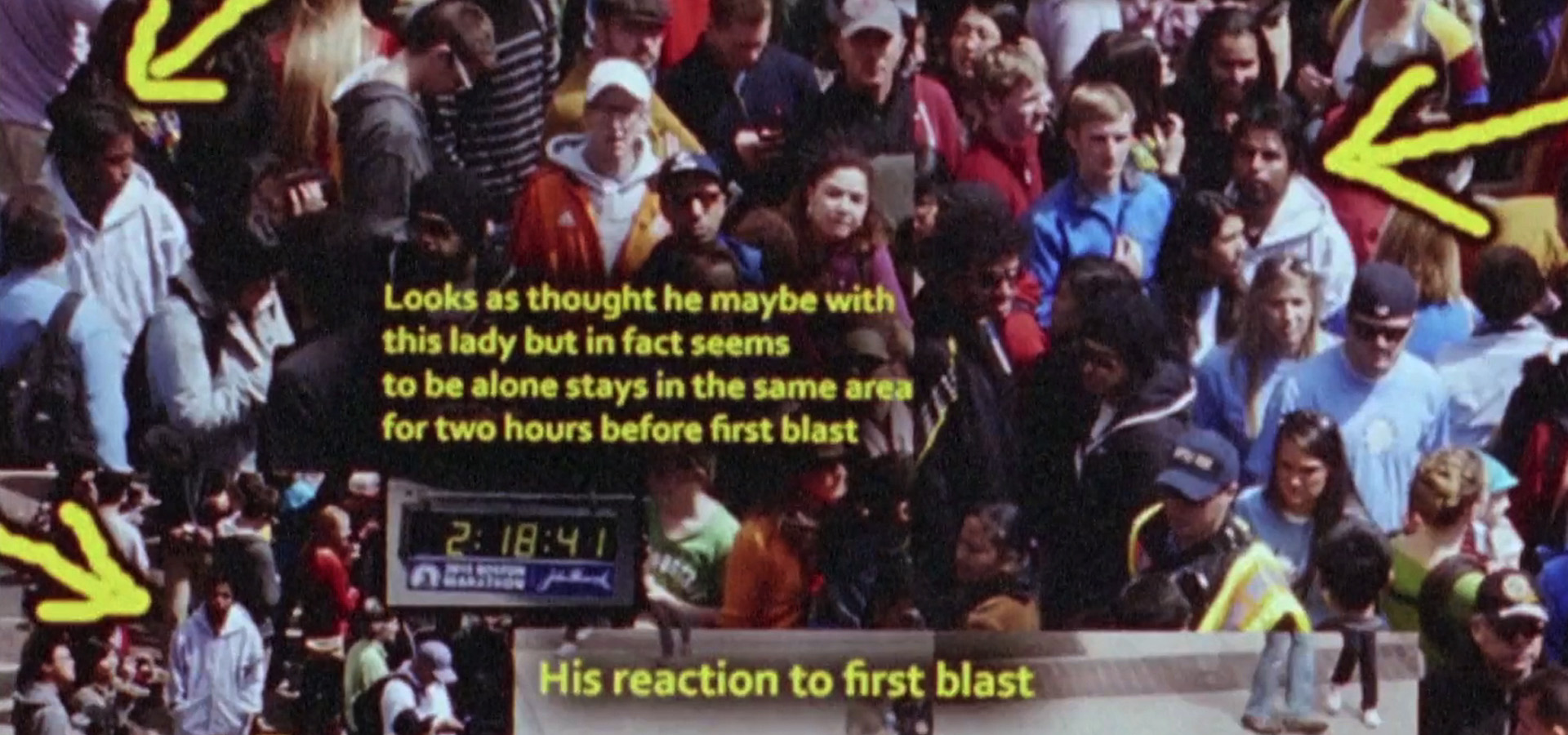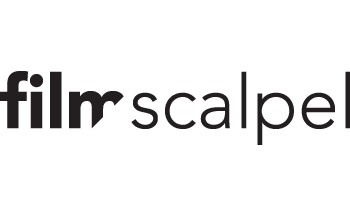Watching the Detectives

Making a great video essay or a great documentary with found footage is about organizing that material into a form that reveals characteristics that were hidden in the original constellation of the footage. When a filmmaker finds such a form, he can trick the original footage into being self-incriminating. In that case a clear and classic authorial voice (via voice over narration or on screen captions for instance) becomes unnecessary. This quietly haunting piece by independent filmmaker and film programmer Chris Kennedy is the perfect example.
Watching the Detectives is a mise en abyme of amateur sleuthing. Kennedy investigates the online investigations that sprung up immediately after the Boston Marathon bombing in April 2013. In communities and on message boards such as reddit and 4chan, amateur detectives scrutinized surveillance footage and photographs of the bombing site. Many were convinced they would be able to identify the culprits in the pixellated images of the masses of onlookers. Their analytical tools however amounted to nothing more than crude diagrams and a lot of speculation.
Chris Kennedy‘s 36 minute silent short uses the online conversations and annotated images of these would-be detectives, and nothing more. By refashioning their byzantine speculations into a linear narrative, the outlandish nature of these theories is made even clearer. Though linear, Kennedy’s montage often doubles back to earlier speculations that had already been debunked but flare up again because these online communities seem to lack a short term memory.
The filmmaker’s smart and revelatory interventions are not limited to reordering the conversations. Kennedy also chose a very specific and meaningful technology for his film. A subject like this would lend itself perfectly to the desktop documentary approach, but Kennedy took another route. He transferred the online images and texts to 16 mm film, a counter-intuitive choice because the analogue film format contrasts with the virtual nature of the source material. But that grainy film helps recall earlier conspiracy theories based on scant visual evidence (think “grassy knoll” and the Zapruder film, for instance). And that Kennedy chose not to use any sound turns this film into a silent indictment of the boisterous nonsense that proliferated in these online communities.
The result is a sometimes chilling, sometimes hilarious critique of these online echo chambers and the self-absorbed sleuths that inhabit them. To be fair, there are numerous voices of reason in Watching the Detectives: users that pour cold water on some of the most overheated speculation. That Kennedy includes those as well offers welcome relief, and a glimmer of hope.

